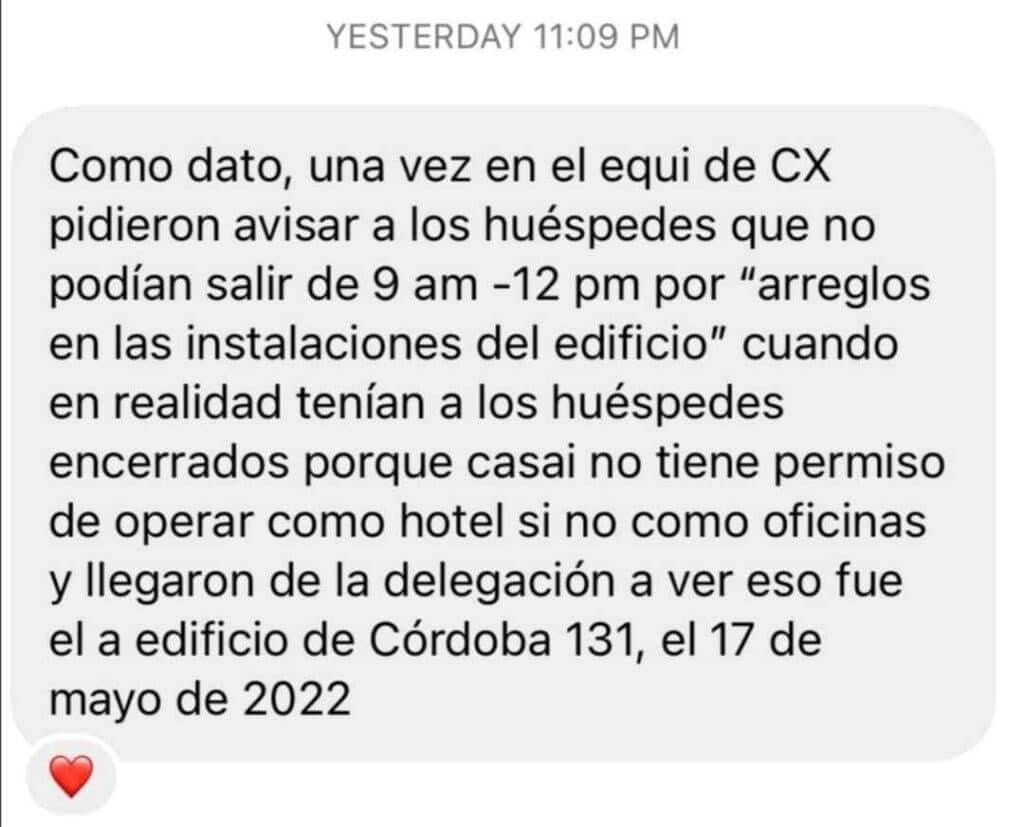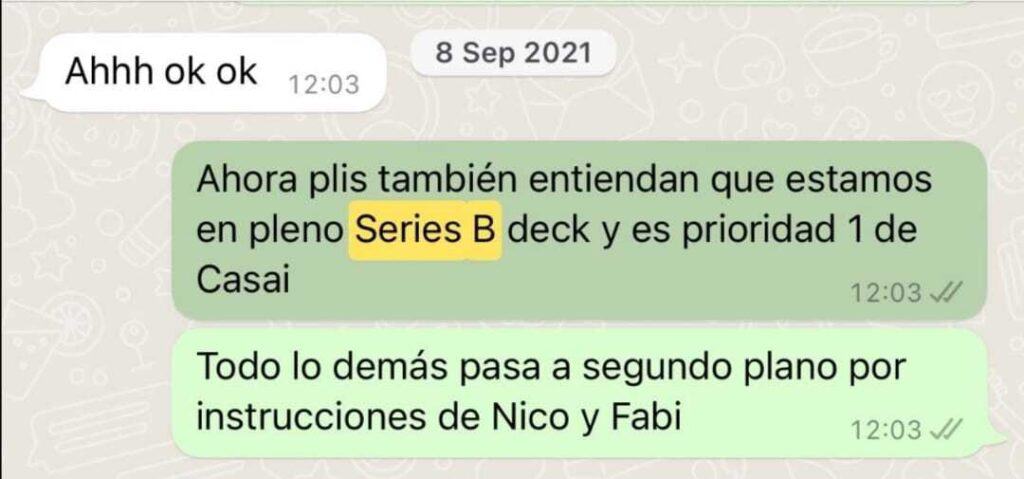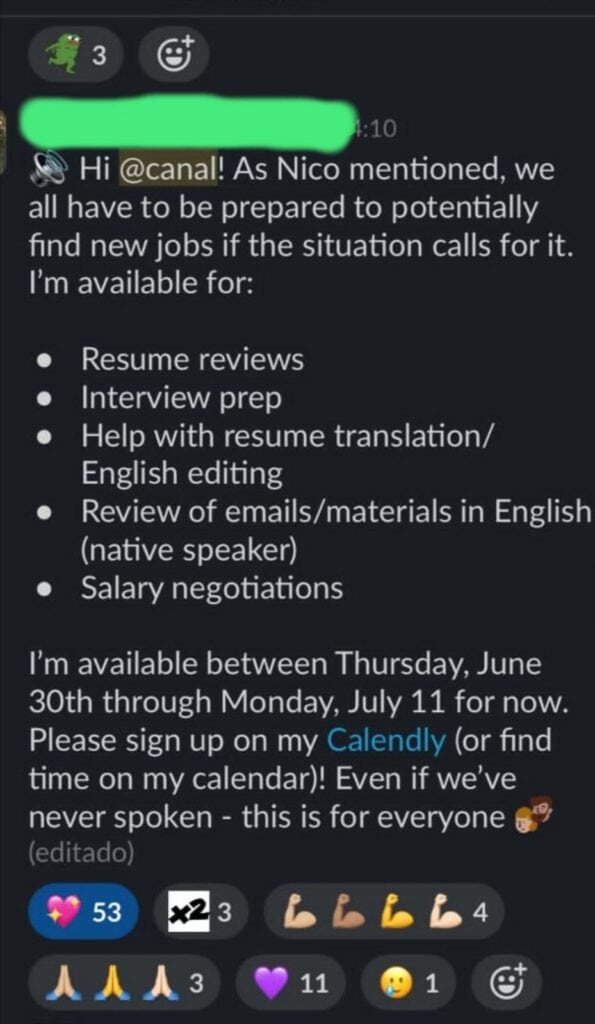
Por Yanin Alfaro
July 28, 2023
Casai was born in 2019. It was the creation of Nico Barawid and María del Carmen Herrerías, who, from the beginning, dreamed of taking this Mexican proptech to unicorn status, with a valuation of over USD$1 billion.
The start seemed promising.
Similar to Airbnb, their business model proved to be so attractive to venture capital funds that they invested significant amounts of risk capital from an early stage.
The Mexican luxury short-stay startup had investors such as Andreessen Horowitz (better known as a16z), Monashees, DST Global, Kaszek, Google’s startup fund, and angel investors Carlos García Otatti and Roger Laughlin, co-founders of the used car unicorn Kavak (which will also undergo a review of its current situation by Contxto later on).
A few months after launching its pilot, Casai received a seed investment of USD $5 million from Kaszek Ventures and Monashees Capital, one of the first funds to invest in Rappi.
The amount of money raised by Casai exceeded the median seed investment in Latin America in 2019, which was USD $1 million, according to a study by Endeavor and Glisco Partners.
Barawid, the CEO, wanted to replicate a Silicon Valley unicorn startup, and he expressed this to his early employees and in interviews with the media.
“Our goal is to position ourselves as a leading company in Latin America in this new category within the hospitality industry and, together with other Latin-origin companies like Nubank and Kavak, become one of the unicorns that have emerged in this region and the first Mexican unicorn in the hospitality market,” Barawid detailed in an interview with El Financiero at the beginning of 2022.
However, that dream vanished in late May when, after four years of operation, the luxury short-stay rental startup definitively closed operations in Mexico, the market it had focused on after completing in Brazil in January 2023.
Casai, like other startups— including the Colombian Muni and the Mexican Perfekto—fell victim to the venture capital drought worldwide. Starting in 2022, they began to run out of capital to sustain their rapid growth. They tried everything: cutting budgets (and staff), merging with the Brazilian Nomah, and closing in Brazil to keep operations in Mexico, but they couldn’t survive.
All of this is based on testimonies from former employees of the now-closed startup.
A former employee who was part of the management team in the operations area said that in 2019, since Casai received its first round of investment, the founding team did not know how to manage the money and burned capital in their early years of operation in a way that might not necessarily be considered strategic.
The ex-employee, who has worked as an executive in large tech companies and preferred not to be named, said that Casai ran its operation informally.
The above may sound familiar to many startups born organically but without prior experience in foreign ventures. (For example, digital entrepreneurs who emerged from working on Rocket Internet projects.) However, this does not necessarily indicate stability.
Among the irregularities, employees were not adequately contracted, buildings did not have the required land use permits (this problem persisted until 2022, according to a former employee with knowledge of the matter), and many expenses were handled in cash, making it difficult to have precise control over the available capital.
“There was an issue of mismanagement and internal chaos,” reveals the source, who adds that there was also “mismanagement of budgets for apartment decorations.”
Moreover, according to the executive, Barawid used venture capital resources for personal expenses and did not hesitate to spend on constant celebrations with company employees whenever they achieved a milestone.
At least three people confirmed the wasteful spending. One of them stated that Barawid hired a communication agency in the USA that charged large sums of money to position Casai in the media in that country.

Casai’s goal during its first year was to grow at all costs. According to the cited source, they sought to demonstrate growth to investors to secure a Series A round and continue with the business as soon as possible.
By 2020, Casai already had 200 locations, which motivated a16z to lead its Series A with USD$48 million in November 2020. This was a historic round for a hospitality startup in the region, which allowed them to expand to Brazil. It was also a round that far exceeded the average investment at that stage, which was USD$9 million, according to the cited study by Endeavor and Glisco Partners.
Maricarmen Herrerías highlighted in an interview with Bloomberg Línea that Casai was one of the few startups co-founded by a woman who raised such a large amount of funding.
By that same year, in 2020, Casai had already raised USD$53 million, a year in which venture capital investment started to soar in Latin America, leading Mexican startups to achieve valuations above USD $ 1 billion. Kavak was the first Mexican startup to achieve unicorn status in October 2020.
After Bitso, Clip, Konfío, Merama, and Clara reached unicorn status in 2021, the path seemed favorable for Casai to achieve the same feat.
That same year, Casai acquired two Brazilian startups to accelerate its growth in Brazil: Q Apartments, to take advantage of short-term corporate rentals, and Roomin, which provided them with 100 apartments in strategic Brazilian cities. Casai’s goal was to double its portfolio in a few months.
In August 2021, the hospitality startup began seeking its Series B round, although Nico Barawid denied seeking capital in an interview with Bloomberg Línea the previous year. Former employees showed internal conversations discussing the preparation of the deck for investors. The target was USD$70 million, but they failed to raise the capital.


In exchange, in April 2022, they tried to secure an extension of their Series A, but they also failed, putting the company in financial distress.
This is Mainly because Casai acquired Loopkey, another Brazilian company, in that same month, leaving them with less cash.
In Latin America, only 39.8% of startups that have obtained a Series A advance to a Series B, and Casai was one of those that couldn’t leap.
The context did not favor them, as family offices and venture capital funds became cautious about Casai after Sonder, an American startup with a similar business model, reported poor performance and laid off staff due to the unfavorable tech environment.
Sonder arrived in Mexico in 2020 with just 16 apartments; it was the most direct competition faced by Casai, even more than Airbnb, as it offered luxury accommodations with integrated technology.
With no more venture capital, Casai began running out of cash, and in July 2022, the proptech dismissed dozens of employees: 60 in Brazil and 20 in Mexico.
According to those affected, severance packages in both countries were illegal. In Mexico, Casai’s lawyers asked employees to sign their resignation and offered 50% of the legally required severance but deferred it to six months and “subjected it to projected rental income,” according to documents shown by former employees.
The startup’s financial problems were causing havoc on various fronts. An employee from a16z told Bloomberg Línea that the fund had provided Casai with six months of financial runway, partly to pay the severance packages.
Former Casai employees revealed that on June 24, 2022, Nico Barawid explained to his team in Mexico that they were facing financial problems and that one option was to merge with another proptech also focused on short-term stays: Nomah, a unit of the Brazilian property sales and rental unicorn, Loft, which it had acquired in 2020 (but wanted to divest in 2022).
In that meeting, Barawid suggested that his employees look for other job options due to Casai’s situation.

From the perspective of a dozen former Casai employees, the proptech lacked proper financial management, as mentioned earlier.
This led to the dismissal of their external communication agency before the personnel cuts, and they began reducing benefits and paying suppliers not from the startup’s account (as usual) but with credit cards from the corporate expense management company, Clara, a Mexican unicorn co-founded by Gerry Giacoman, Barawid’s partner.
In June 2022, Clara boasted on Twitter that Casai was leveraging its expense management through the Clara platform to focus on its growth.
The merger with Nomah became effective in August 2022. The operation aimed to strengthen the companies, but they continued to be unprofitable, as the demand for the apartments was not enough to yield positive results.
Casai and Nomah announced their definitive merger agreement as good news in the Latin American entrepreneurial ecosystem, but in reality, both companies needed to join forces to survive.
The merger included increased capital from their investors: a16z, Loft, and Monashees, although the amount was not disclosed due to a confidentiality agreement.
The Brazilian unicorn Loft, the main shareholder of the new company, stated in a press release that they were “making space for the emergence of a company capable of being sustainable in the new global context” in the luxury short-term accommodation market.
In an interview with Forbes, the merged company said that the money from the merger would be used “to enable the integration of the business and expand to other geographies in Latin America.” However, their attempts to continue growing and generating demand did not survive for more than four months.
The lack of business traction ultimately led to the dissolution of both startups. In Mexico, a former customer service employee said that the demand for accommodations was not profitable, and budget cuts began to affect property maintenance.
The situation escalated, resulting in customer complaints resolved with cash bonuses, generating more losses than gains.
“The apartments were not in optimal conditions in terms of maintenance and cleanliness; there was not enough operational capacity, with four maintenance personnel working seven days a week in inhumane shifts,” the source recounted.
The goal for the end of 2022 was to have 1,000 properties between Mexico and Brazil, according to statements by Maricarmen Herrerías.
According to another former employee, the offering was distributed in 14 buildings: 10 in Mexico City, one in Los Cabos, and three in Tulum, in addition to some individual apartments.
Casai paid large sums of money for rent in some areas, and the return on investment did not meet expectations due to the lack of occupancy of the accommodations, said a former employee familiar with the matter.
With no more venture capital and insufficient demand, Casai closed its accommodations in Tulum and Los Cabos and made a second round of layoffs in December 2022, which included key personnel for the company, including the general manager of Mexico.
In early 2023, the Mexican proptech announced its exit from Brazil, the market it had focused on in July of the previous year. The merger with Nomah didn’t work out.
On Nomah’s website, a notice was written in Portuguese: “Olá! Infelizmente, a Nomah não está operando mais apartamentos no Brasil” (“Hello! Unfortunately, Nomah is no longer operating apartments in Brazil“).
In January 2023, Casai and Nomah stopped paying suppliers and lessors; in a statement, the merged company announced that it would fulfill its commitments by the end of that month.
From that moment on, Casai’s apartments began to be offered for rent through their competitors in Brazil: Stay Charlie and Tabas.
A few weeks ago, Casai also announced on its website that it closed definitively.
“We feel very honored to have hosted more than 110,000 of you in our apartments in Mexico City, Tulum, Cabo, São Paulo, Rio de Janeiro, and Florianópolis. We have transferred all our 2,000 apartments to some incredible local operators in Mexico and Brazil who will continue to offer you incredible experiences in those cities,” wrote the Casai team as a farewell.
Casai was a promise for the startup ecosystem in Mexico due to its rapid growth and the trust it had gained from investors who had supported significant startups.
However, the venture capital environment began to become scarce in 2022, and the mismanagement of its business, as former employees agreed, ended the dream of becoming a unicorn.